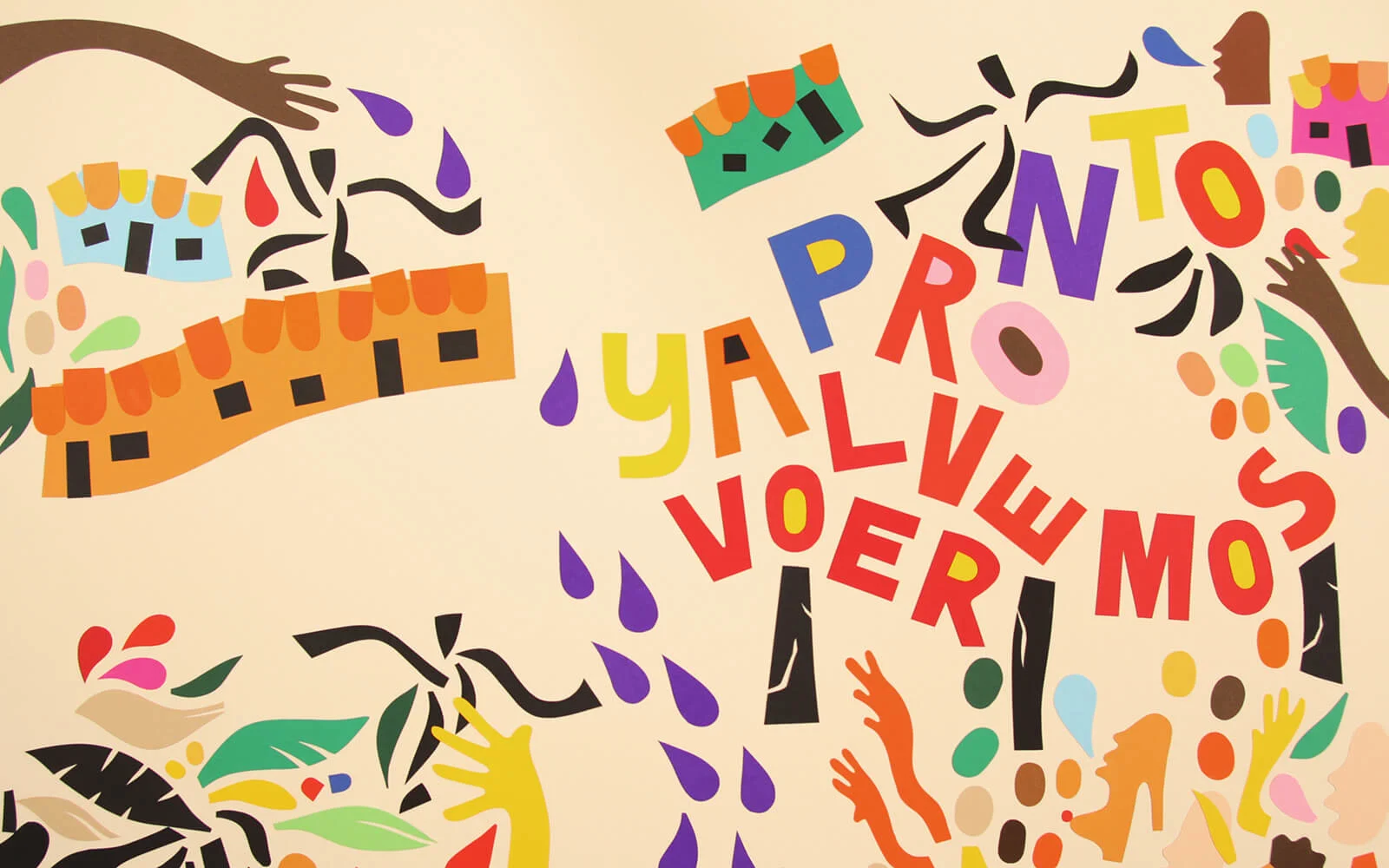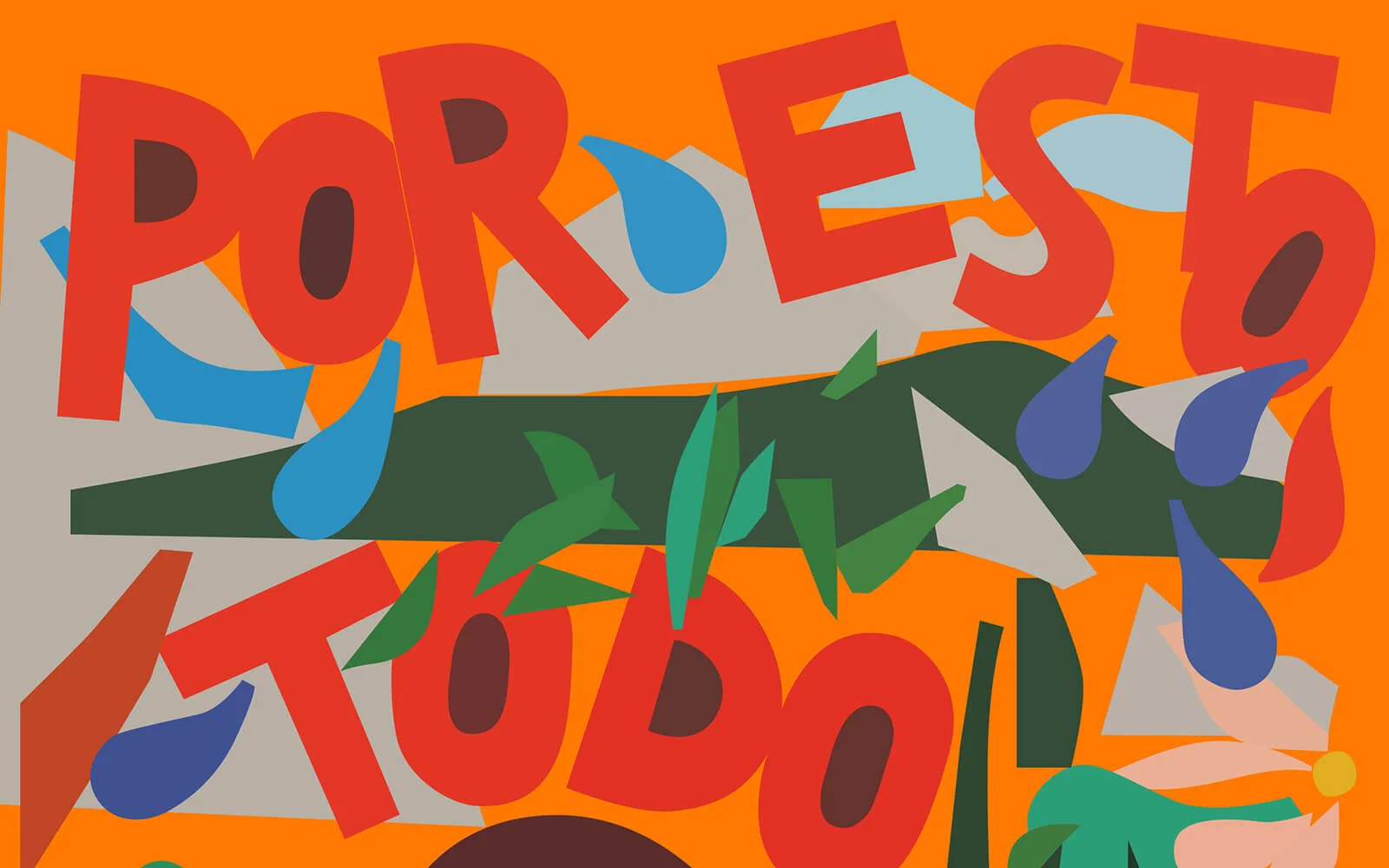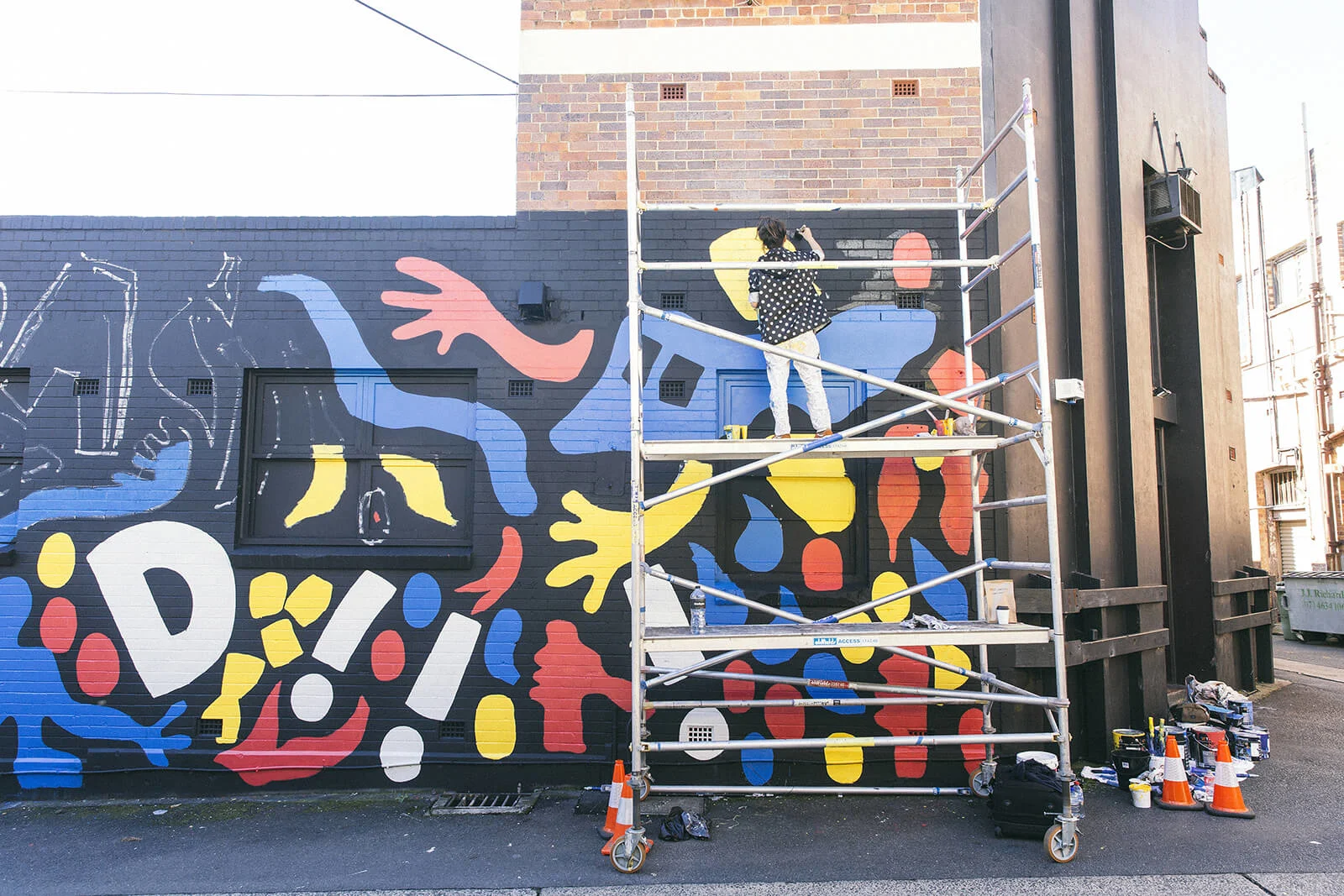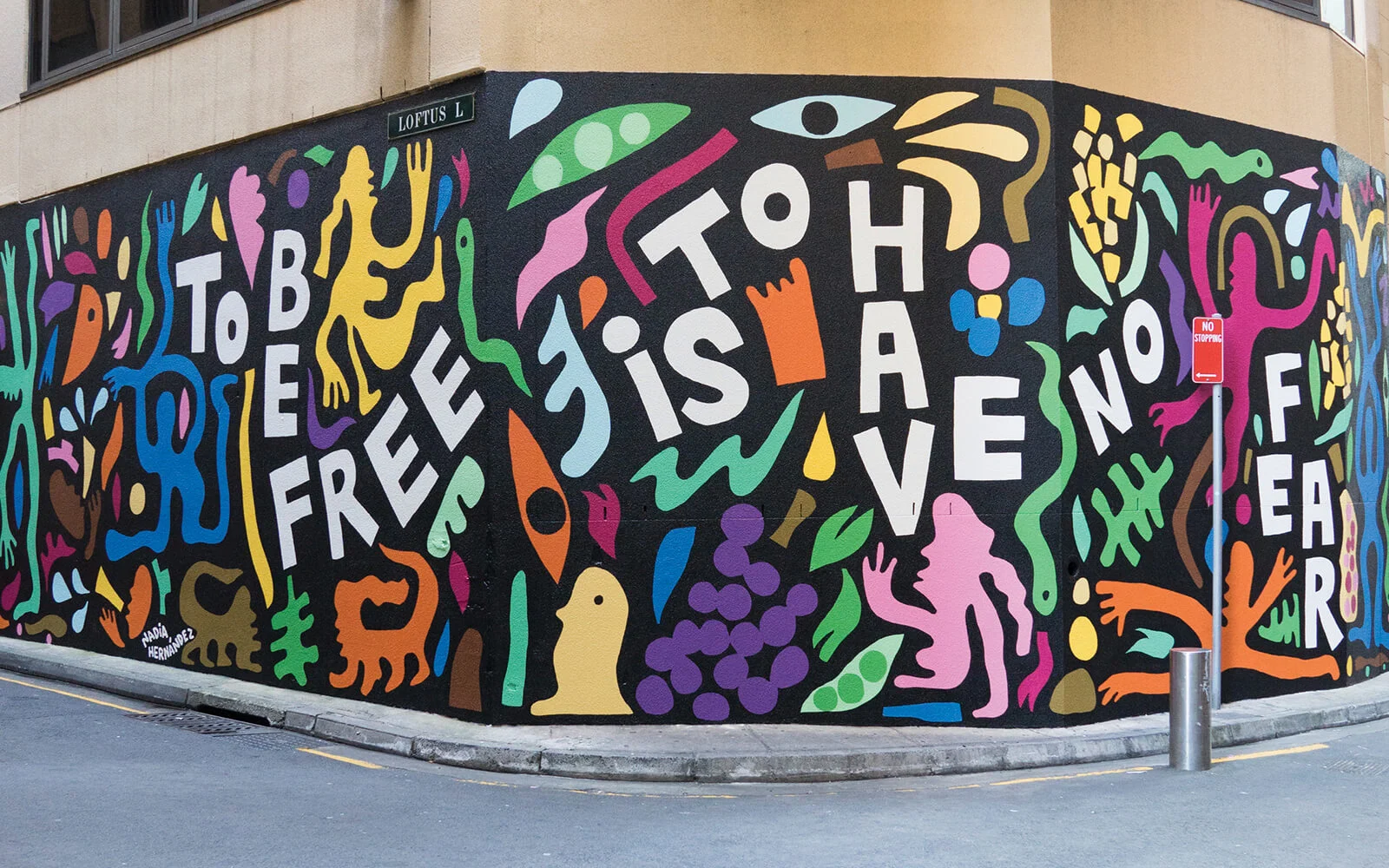
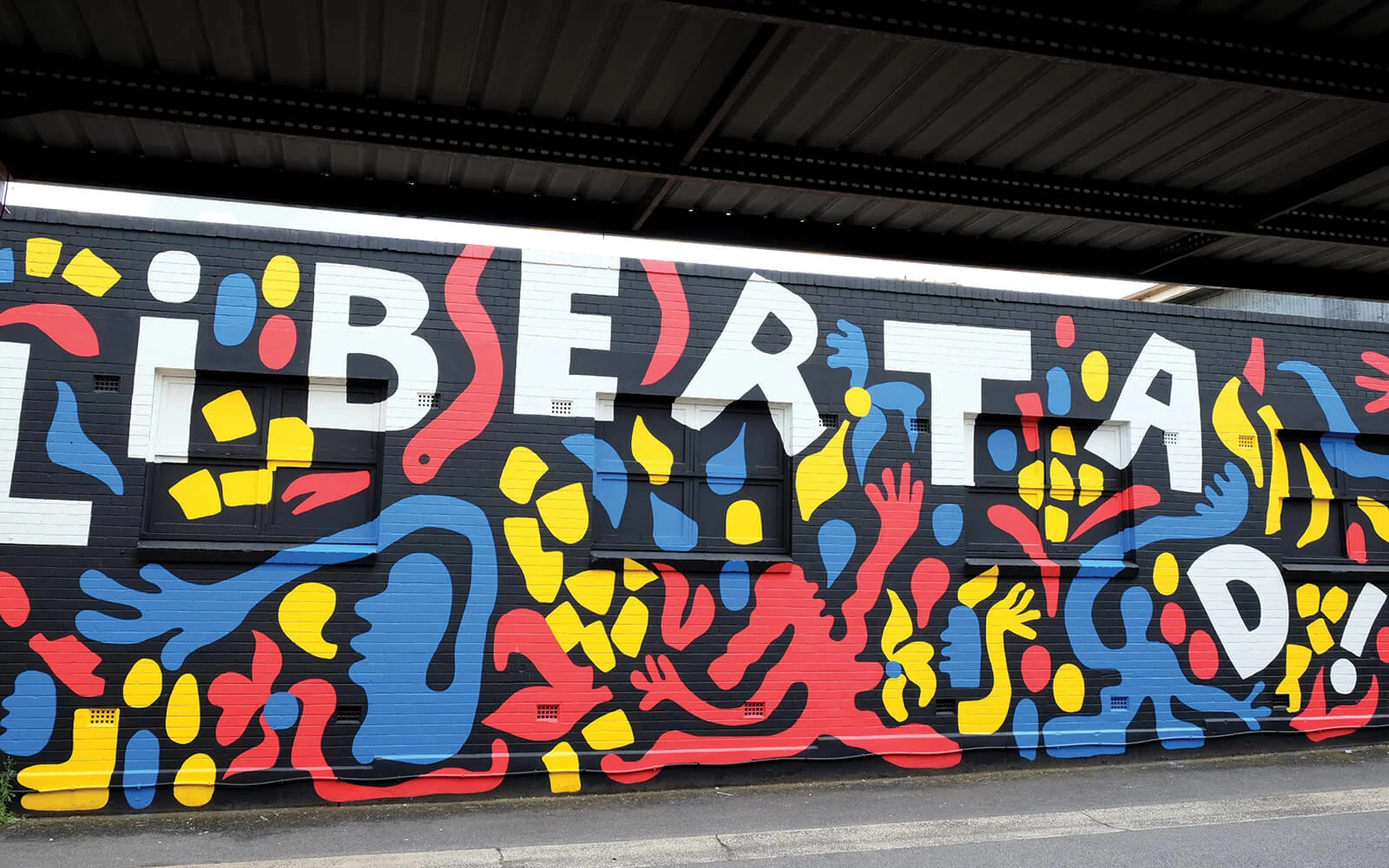
Sydney-based artist Nadia Hernández doesn’t know when she’ll see her home country of Venezuela again. The last trip she made there was in late 2016 after eight long years away, at a time just before anti-government protests turned violent.
“I felt so many mixed emotions upon my return,” she recalls. “As the plane started to descend it felt slightly surreal for my body to be home again after so long. I was so happy to see my family but shocked and sad to see my country in such a state of destruction, which since I’ve left again has only gotten worse.”
As a crowd marches in protest, it’s the posters that punctuate the sea of people and narrate the cause most effectively. Poster art is accessible in that it’s usually homemade and hand-painted; needing to communicate clearly and quickly, it’s easy to understand. Although Nadia can’t stand physically with the protesters in the place she grew up, the colorful paper cut-out collages and large-scale murals she makes back in Australia call for hope during Venezuela's political, economic and humanitarian crisis.
I think hope is the most important feeling to hold onto – that things will change regardless of how long they take.
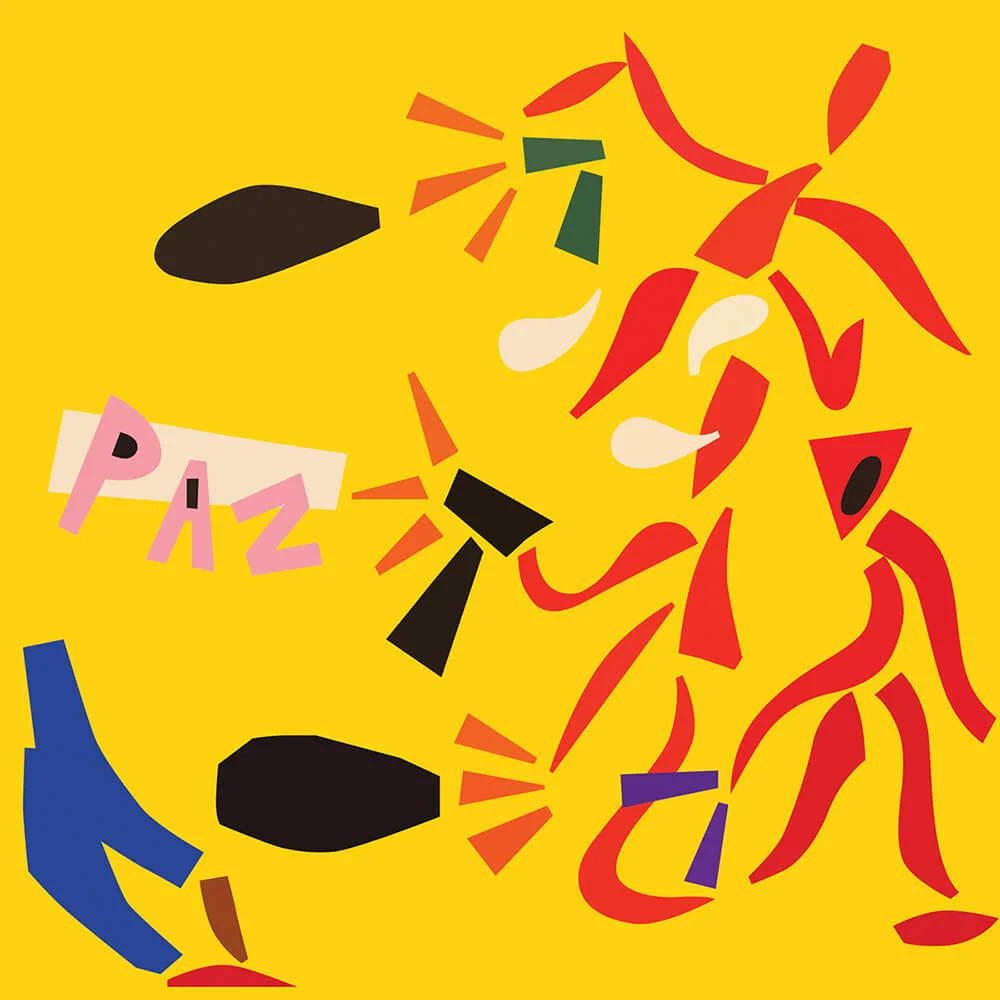
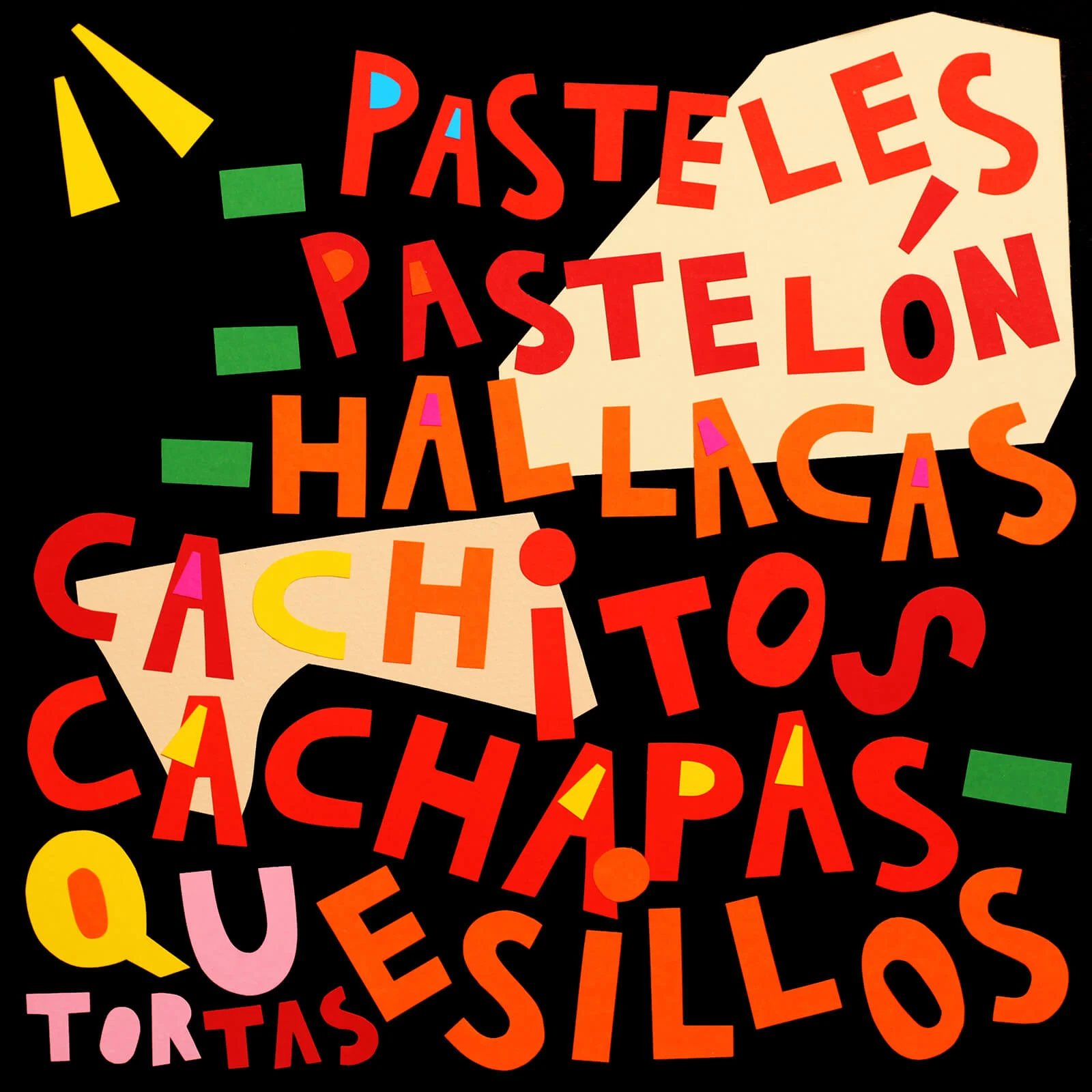
Nadia’s work is characterised by abstract shapes in bold colors and text that dances across the frame. Her artworks shout “Strength comes from Union,” and “No more misery.” With these phrases, in combination with the bright colors, she wants people to feel an overwhelming sense of hope when they see her work.
“I think hope is the most important feeling to hold onto – that things will change regardless of how long they take,” she says. “It’s difficult to be optimistic, it’s difficult to remain hopeful but once hope and optimism are gone, what’s left? If the works can radiate that, then maybe they can translate into courage within the individual, even if the topic and subject matter is dark, or worse, a reality.”
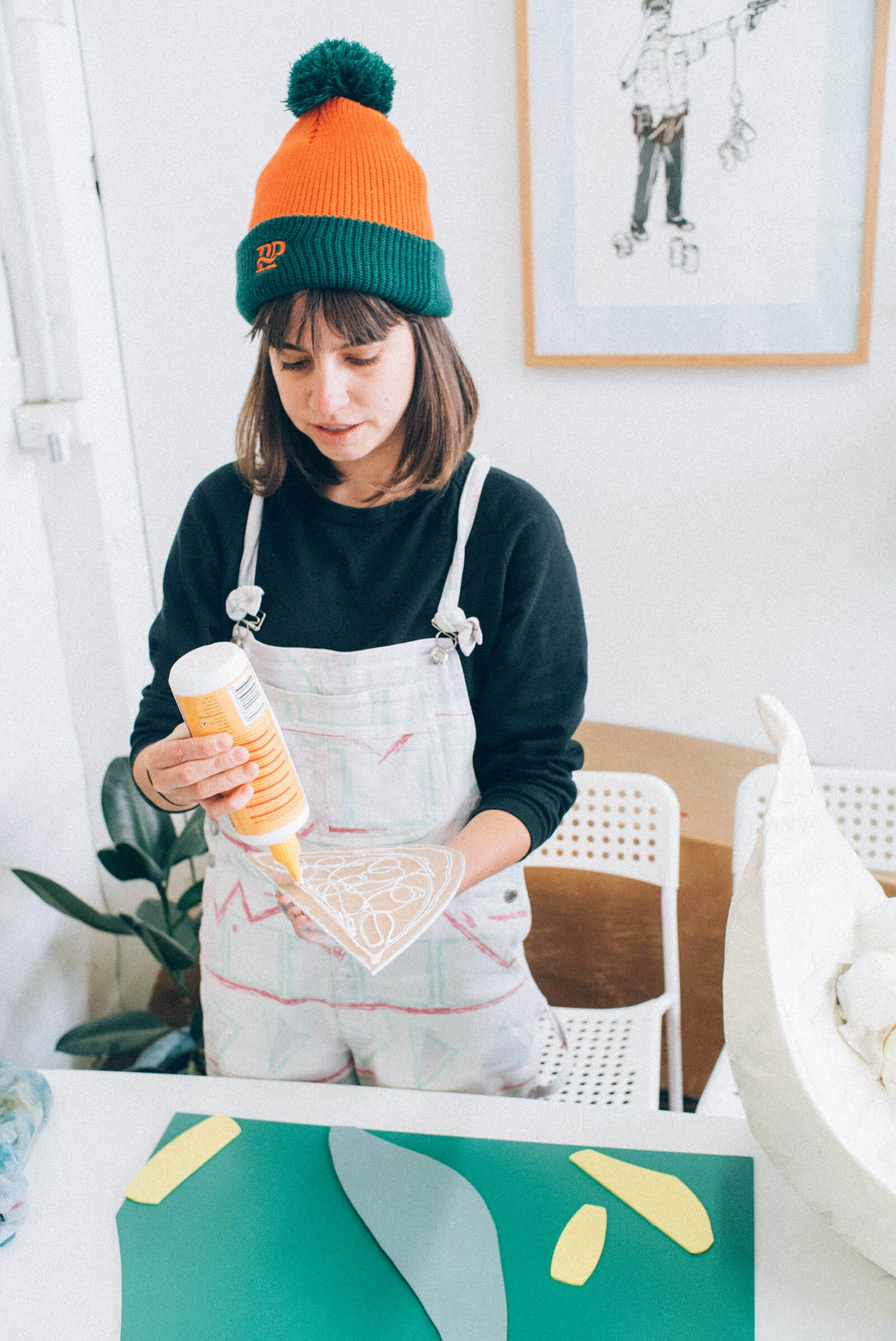
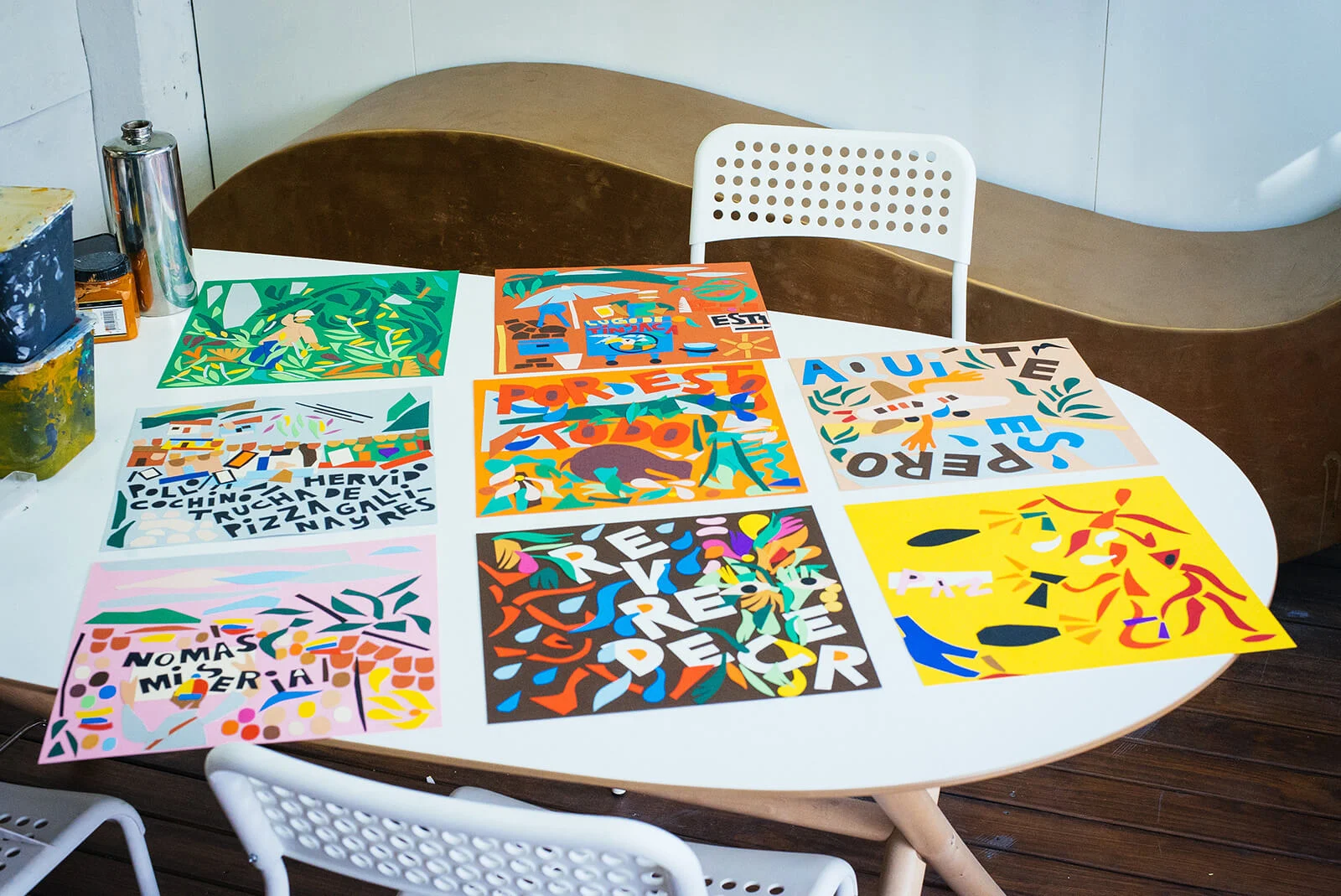
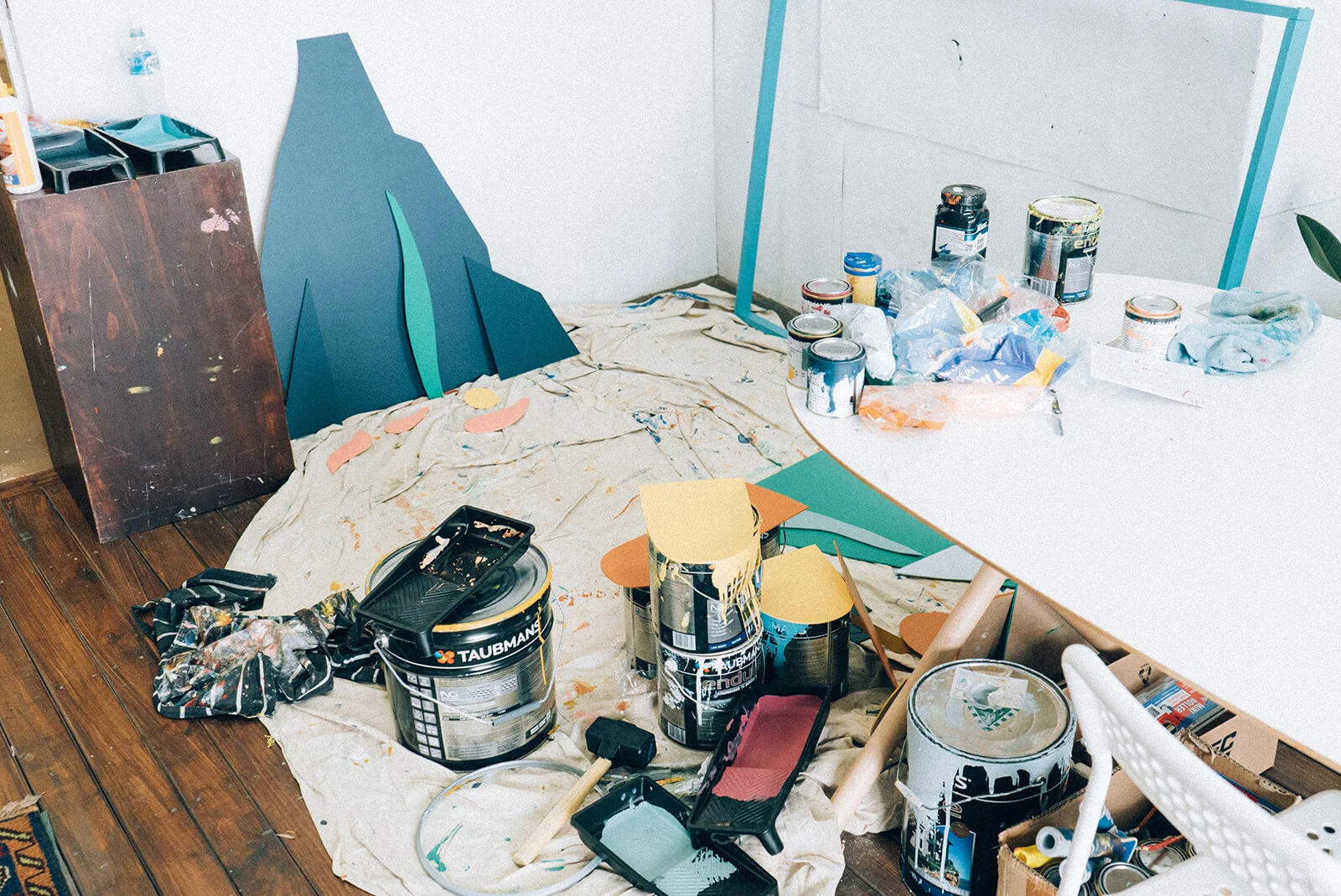
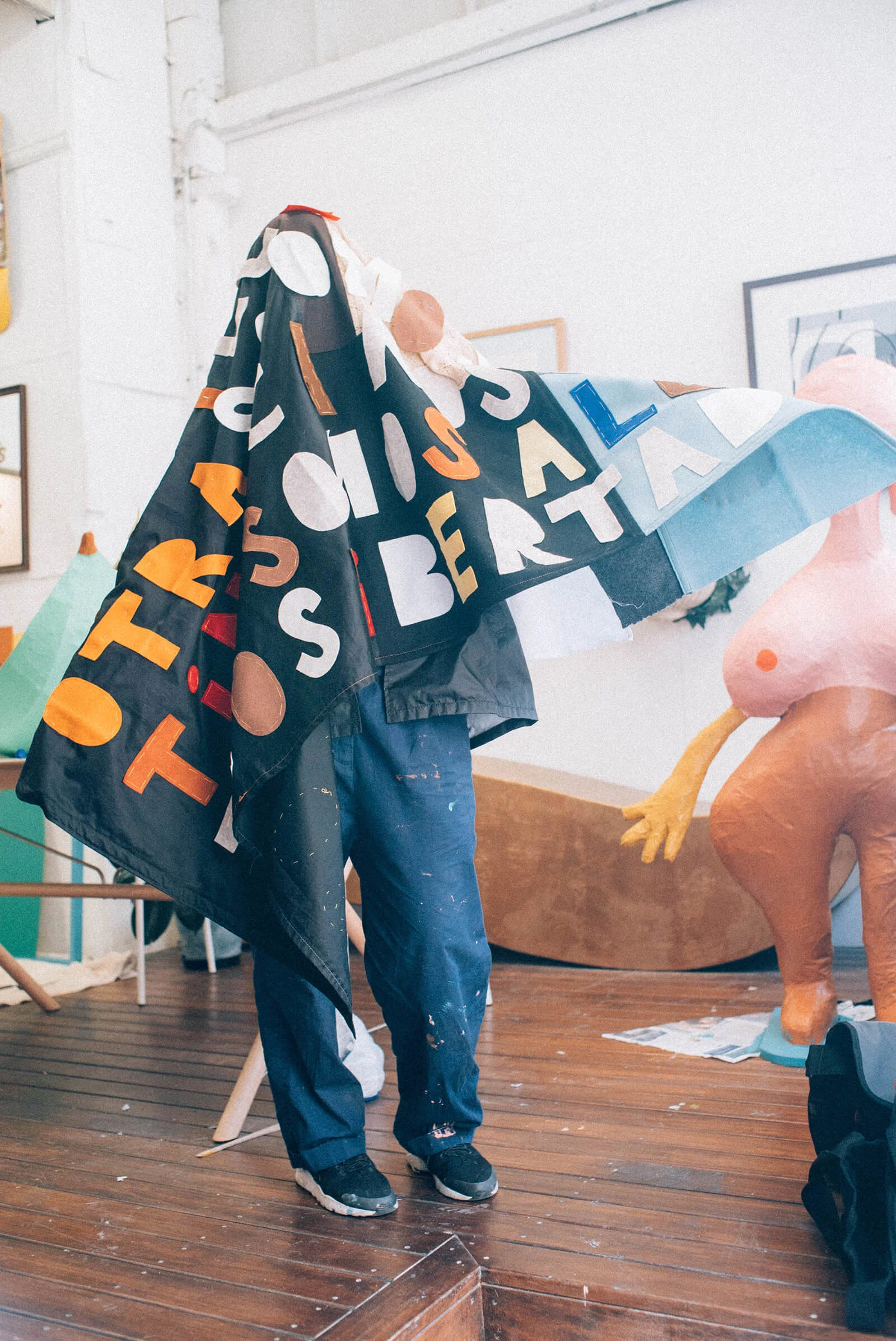
Even though the words on her posters are in Spanish, Nadia says she makes them for a broader audience, to make them realise that issues that may seem distant are actually not so far away. “My biggest hope is that my work can inspire a discussion which can then lead to individual reflection and in turn be a catalyst for change.”
The series Cosas Antes y Después (Things Before and After) was inspired by her 2016 trip home. Some of the abstract paper collages are based on photos she took of La Toma de Venezuela, a nationwide protest she attended with her grandfather in her hometown, Mérida, which sits in the northwestern corner of the country. In one photo a boy stands on a window sill on the morning of the protest with the Venezuelan flag wrapped around his waist – which she then translated into a paper collage promoting peace.
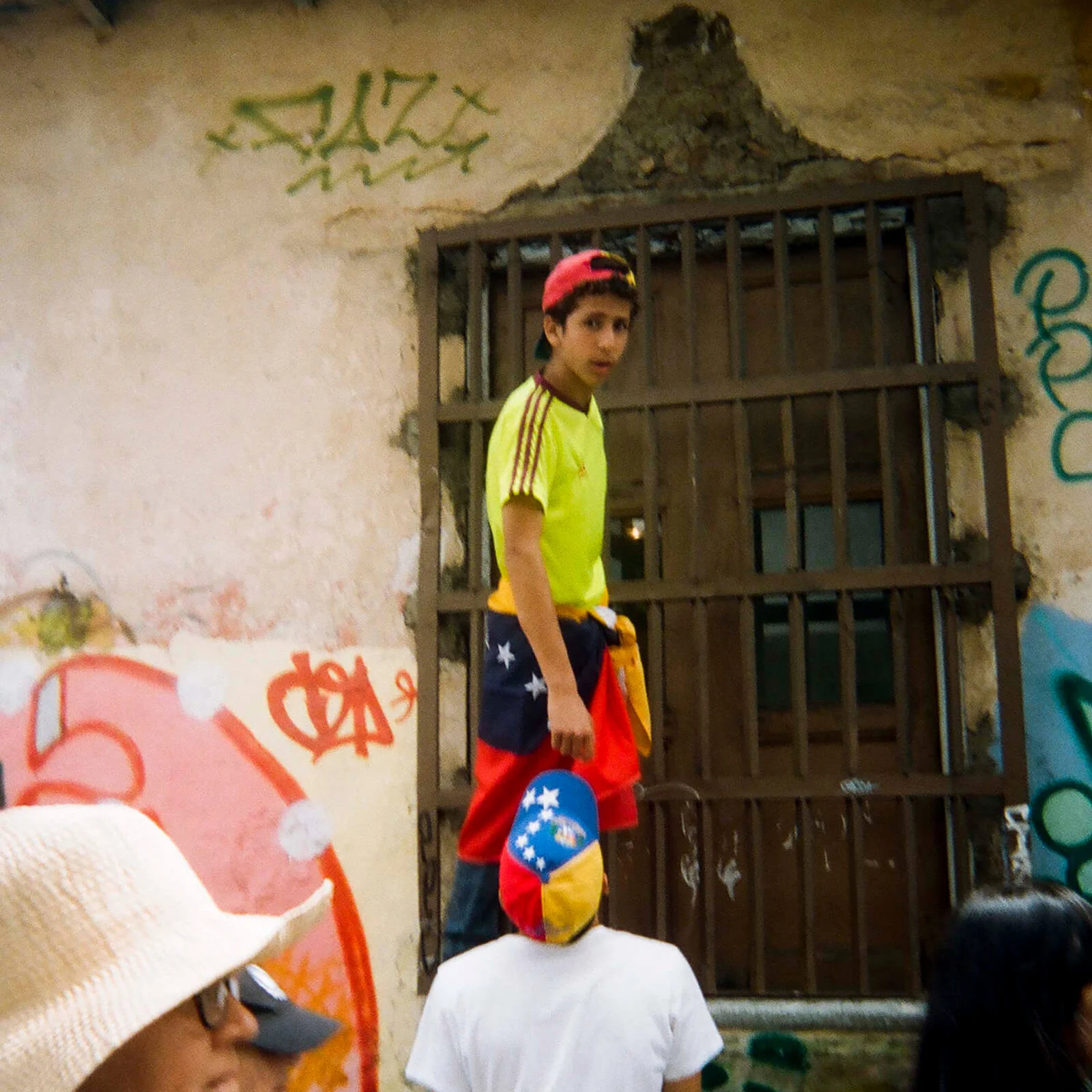
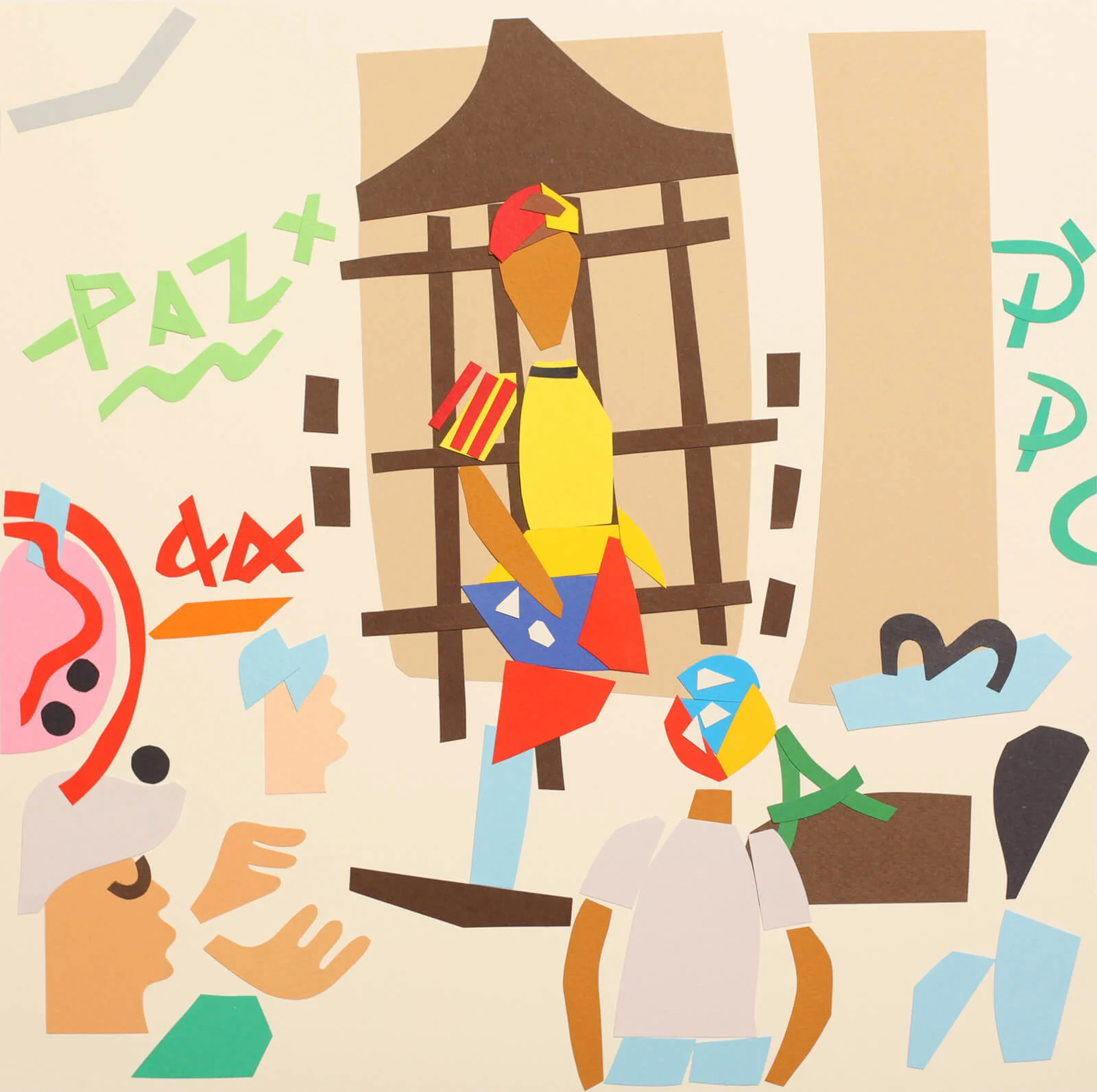
Another important thread in Nadia’s work is preserving and promoting popular traditions. And so, based on the everyday scenes that define Latin American folk art, other works in Cosas Antes y Después reference the natural surroundings in Mérida, like farm animals on the side of the road, or meeting an orange juice vendor called Tinjaca on a trip to the market.
Nadia balances her personal projects with commercial ones like brand collaborations with Havaianas or Nike SB to make a living, but the essence of all her work is an exploration into her own cultural identity. For example, in her upcoming body of work titled Este Es Mi Ejército (This Is My Army), she focuses on place and displacement through her own diasporic experience. But always with hope. Like one of her works expresses: Ya Pronto Volveremos, soon we will return...
Words by Alix-Rose Cowie
